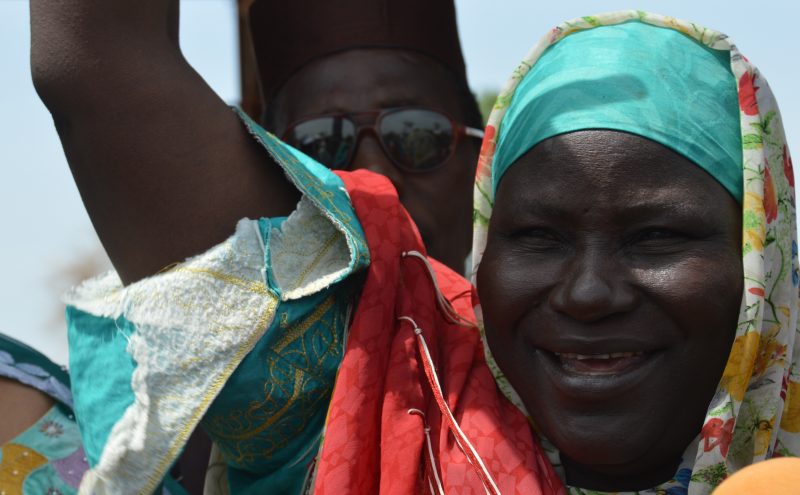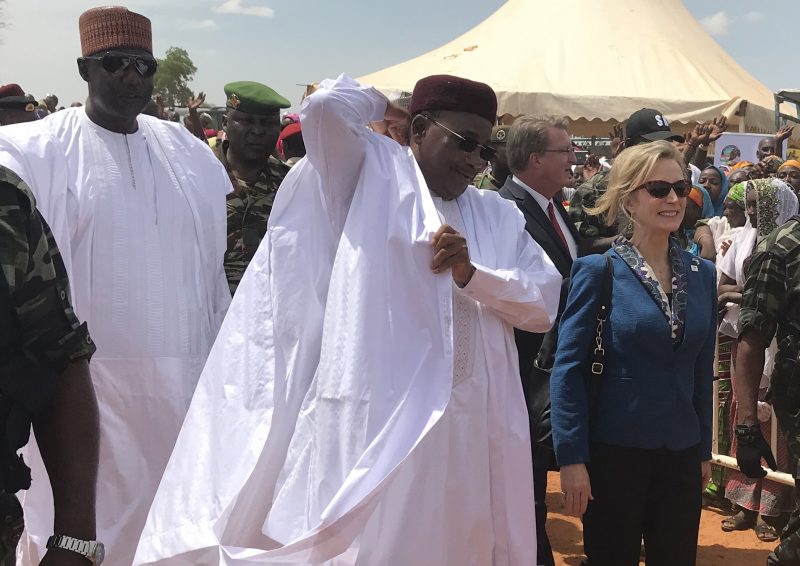
MCC
A woman cheers at the launch ceremony of the MCC’s Niger Compact in Margou, Niger.
Despite challenges, Nigeriens remain optimistic. One visible sign was a song that the local group Sogu had composed for the MCC compact launch. While swaying to Touareg rhythms, the Nigerien ladies sang in English and French about how the Millennium Challenge Corporation is reducing poverty through economic growth. And the enthusiasm of the performers on stage was just the beginning, as crowds of thousands cheered farther out in the audience, signaling their hopes for the large-scale irrigation and roads projects that the compact is bringing to Niger. Almost 4 million Nigeriens will benefit from these U.S.-funded investments.
Nigerien President Mahamadou Issoufou presided over the festivities, greeting the crowds as his white robes billowed majestically in the warm morning breeze. Thoughtful speeches were given, including those by Minister Ouhoumoudou Mahamadou, the Chief of Staff to the President of Niger, and by Mr. Mamane Annou, the Director General of the Millennium Challenge Account-Niger and himself a former Minister of Economy and Finance. Each of these men has a special bond with the United States that began years before when each traveled from the intense heat of their homeland to the freezing plains of Minnesota to study.
After the ceremony, in an impromptu press conference, President Issoufou spoke of what a great accomplishment this compact was for Niger. He also recognized the commitment of the United States to help Niger achieve prosperity as well as greater security and stability. A stronger agricultural sector will produce a stronger economy in Niger.

MCC
Nigerien President Mahamadou Issoufou, center, greets the crowd at the compact launch ceremony. He is accompanied by Minister Ouhoumoudou Mahamadou, left; U.S. Ambassador Eric Whitaker, center right; and MCC VP Jeanne Hauch, right.
Niger is on course to fulfill the promise the United States has placed in them with this compact. The MCC compact complements important U.S. government initiatives such as Feed the Future, as well as those of the government of Niger—the most important of which is the “3N” Nigeriens Nourishing Nigeriens initiative, a multi-sectoral approach to increasing food security.
A key aspect of the MCC project is that it is led by and implemented by Nigeriens. They are hungry for smarter development. The Nigeriens I met are clearly ready and able to take up this challenge.

